Living Abroad: A Q&A with Jody Kurash
By • January 15, 2025 0 8710
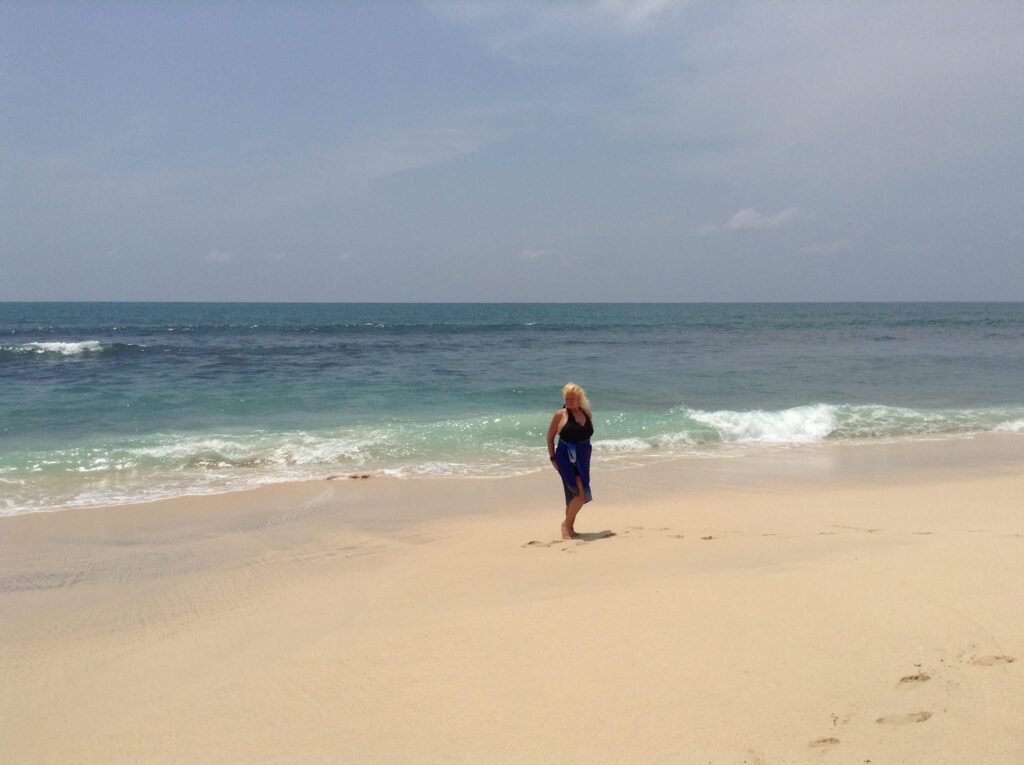
Seeking an expatriate from D.C. to share his or her experiences, The Georgetowner turned to Jody Kurash, longtime contributor of the popular Cocktail of the Month column. In recent years, her column has included colorful descriptions of Asian dining and imbibing.
What’s the most important step to take when you finally decide to move abroad?
Jody Kurash: I think you need to have the right mindset. Moving abroad is an adventure. Almost every aspect of your life will change in some slight way or other. You need to stay positive and be able to see things from a different perspective. I chose to live abroad because I wanted a change. So, you must embrace the differences in order to adjust to your new way of life.
What’s the best way to find a place to live?
JK: I’ve always relied on friends or work connections to find places to live. There are a lot of housing groups on social media, but the prices tend to be higher. In a place like Bali, there is double pricing — one for tourists and one for locals. Like the U.S., you can rely on rental agents and realtors. If you live someone for a long time and decide you want to purchase property, you need to carefully look at the rules for foreigners. In some countries, you need to have a local person be part-owner, and in others foreigners are only allowed to “lease” land and/or a home for a long period of time.
What about continually changing your locale. Is that easier or more difficult?
JK: I’ve lived in four countries: Peru, Indonesia, Taiwan and Vietnam. Staying in a location longer gives you time to put down roots and deepen friendships. But then you lose the wanderlust factor of seeing many new places. I like to keep a home base, then work for a set amount of time, then travel for a few months at a time. I find that after a few months of wandering, I’m happy to sleep in my own cozy bed.
A lot of people like the nomadic lifestyle, where they move every few months. If you choose this route, remember that you’ll have to learn to live with just the basics — or you’ll find yourself buying a lot of the same things every time you move.
How does the rest of the world perceive America?
JK: I hate to say it, but generally it’s negative. I don’t even try to explain some of the ridiculous things that are uttered by Trump when people ask me.
When people ask me why there are so many guns, violence and mass shootings in America, I am at a loss. School shootings and gun massacres in public places are generally an American thing. I live in an apartment complex with mostly Australians. In Australia, mass shootings are virtually unheard of. After a mass shooting in 1996, the country enacted strict gun ownership laws and the problem disappeared.
On an interesting note, when I lived in Vietnam, I was always surprised when people said they liked America. The Vietnamese have been able to move forward and put the U.S. invasion of their country behind them. Despite being a communist country, the people there are very entrepreneurial and they respect America’s wealth.
People abroad are also generally misinformed about America. When I explain to someone the cost of health care, medicine and insurance, they are shocked. When I explain that many people with long-term illnesses are forced to file bankruptcy, they are appalled. They assume America has national health care like other developed countries.
I had a conversation with a Venezuelan man (who lives in Peru) last week. He was under the impression that if you get sick in America and can’t pay your bill, it is free. Perhaps this might be the result of the propaganda spouted by conservatives that illegal Latin immigrants are coming to the U.S. and “stealing” health services. These untruths could actually be selling points, making America more appealing to foreigners.
Why did you choose Bali?
JK: I first fell in love with Bali as a tourist. I visited Bali three times in the course of two years between 2005 and 2007. Bali has a very strong spiritual energy and I had a strong feeling that I was going to live there on my first visit. At that point in my life, it was highly unlikely, but things change. In 2013, I was living in Peru and I saw a job opportunity in Bali and jumped on it. I do caution people that living someplace is completely different than visiting it on vacation, so just because you had a wonderful holiday somewhere doesn’t mean you’ll be happy living there. When you’re on a vacation, you’re not thinking about your budget or having to worry about mundane tasks such as getting a driver’s license or shopping for and cooking dinner.
Sometimes shopping can be challenge if you’re looking for something common in your old life that’s not typical in your new home, for example: ranch dressing, size-10 women’s shoes or sheet sets with a top sheet. You have to learn to be patient and adjust.
What are the major differences in lifestyle?
JK: Firstly, in Bali, people are much more friendly. I like to say that, when I pass people walking down the street, people will look at me strange if I don’t say hello. In Washington, people would look at me strange if I did say hello.
Overall, everything is much more laid-back, which can be a double-edged sword. It’s nice to have time to relax, but if you need something done quickly, like fixing a leak in your home during rainy season, the laid-back attitude can be frustrating. Often things seem to be terribly inefficient, but you have to remember that you’re judging things from a different perspective. If the local people are happy with the way things are, then you just need to accept it.
How does the cost of living compare?
JK: Although it’s gotten quite high in recent years, the cost of living in Bali is low compared to the States. That is true if you live like a local. I don’t go out to tourist-oriented restaurants and I live outside the major hotel zones.
With the rise of digital nomads, some areas of Bali are almost completely Westernized and priced that way. You’ll find anything geared towards foreigners, such as Western-style supermarkets, will also have Western prices.
Even though my income is drastically lower, I have a much freer lifestyle. I can afford to eat out every day (at local restaurants), have my laundry done for me, rely on ride-sharing apps for transportation (rather than driving myself), get my apartment cleaned and go to the spa at least once a week. These are considered “extra” expenses in the U.S., but in Bali, they’re standard.
And the climate?
JK: Bali has a tropical climate, which is one of the reasons why I moved here. I love hot weather, the beach and the sea.
What about language barriers?
JK: Since Bali is a major tourist hub, many locals speak English, which is helpful. I have learned the national language, which helps a lot with day-to-day tasks, when I’m getting my laundry done or shopping at the traditional market. When I lived in Peru, I spoke Spanish because I ended up living far away from the touristy areas.
In Taiwan, I lived in Taipei, where many people spoke English. I tried learning some Vietnamese, but not very successfully. I spent my first six months in a village where the only locals that could speak English were the English teachers from public schools. I ended up relying on these people for help — as well as Google Translate. Even when I moved to Hanoi, the language barrier was challenging. Translator apps are a must.
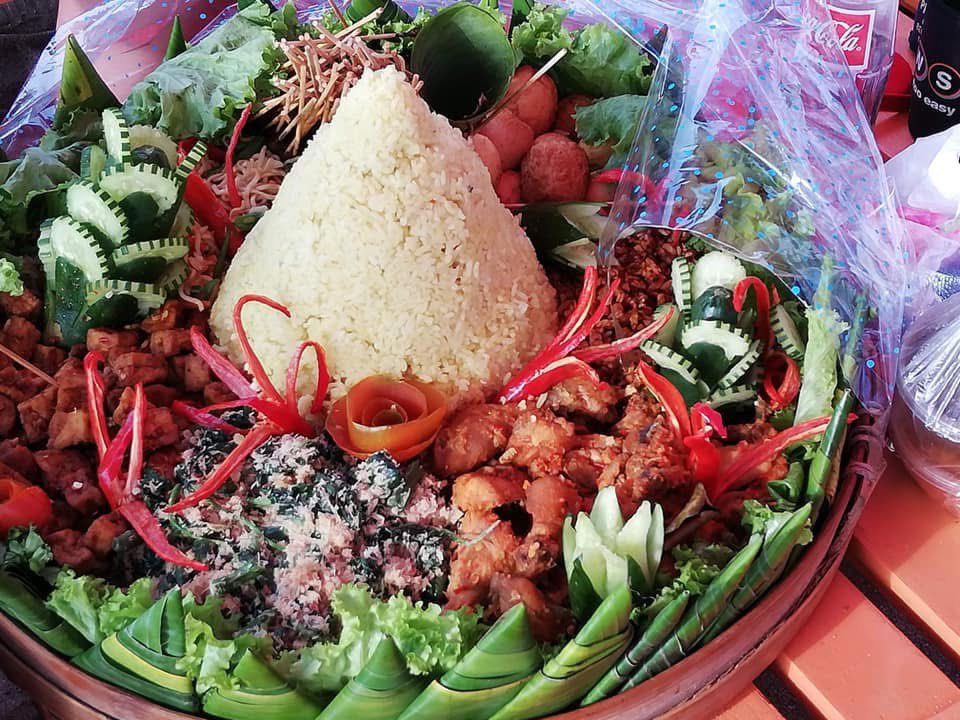
Men preparing traditional padang, a dish named for the capital of West Sumatra, at a wedding in a rural area. Photo by Jody Kurash.
How is the culinary scene?
JK: I loved trying new foods and learning about different cuisines. You need to keep an open mind and be willing to try new foods and ingredients. It took me two trips to Bali before I realized that the local food can be quite spicy (which I love!). I found that any restaurant that serves local food with an English menu tends to knock down the spice factor to appeal to foreign palates. I’ve also learned that Indonesian food varies a lot from region to region. My favorite is North Sumatran Batak food.
Peru is known as culinary hot spot. When I stayed in Lima, I lived near the largest fish market in Peru and I loved going to the restaurants there for fresh ceviche. It’s the type of place Anthony Bourdain would rave about if he were still alive. It’s my favorite place to eat in the world.
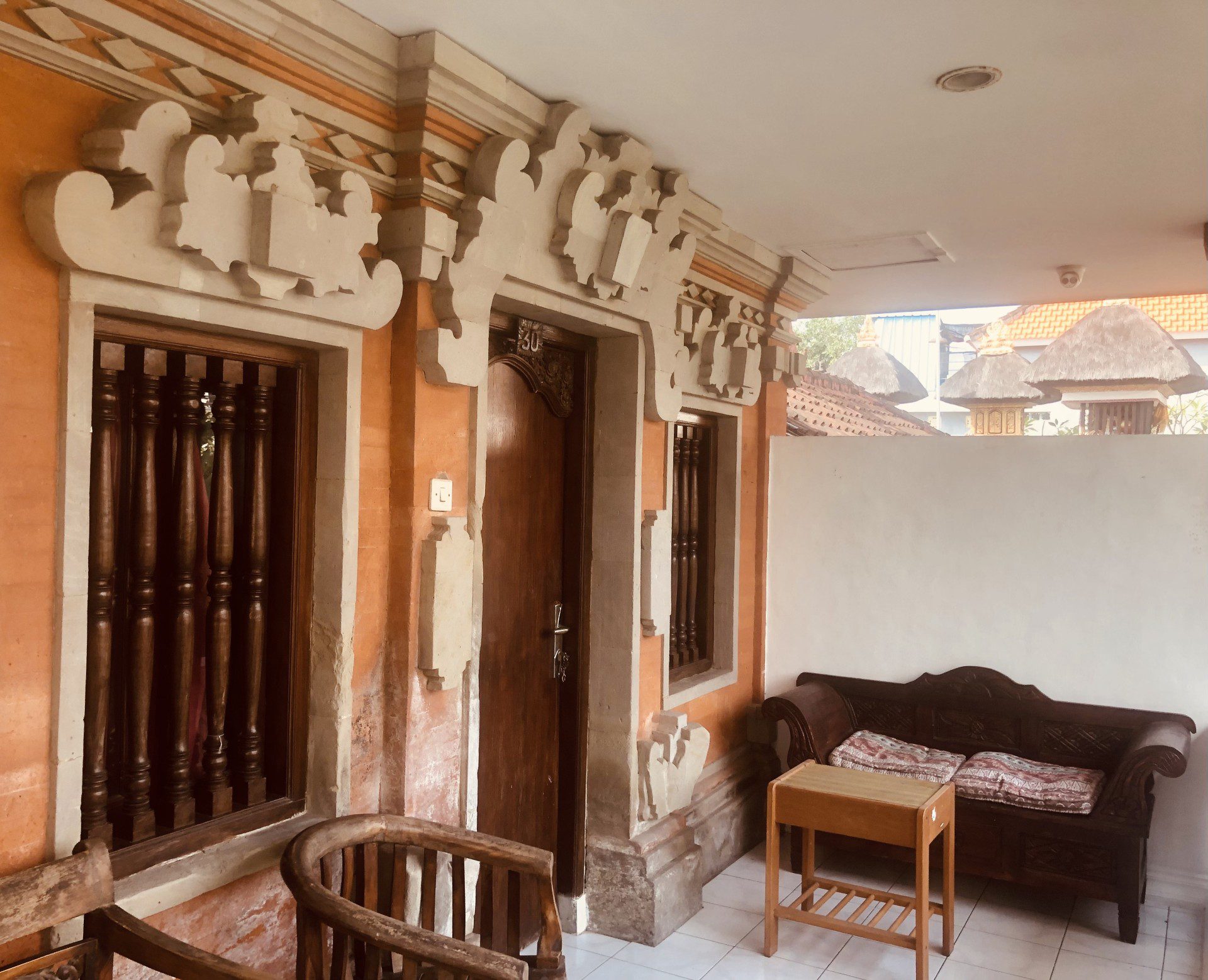
Outside Jody Kurash’s home in Bali. Photo by Jody Kurash.
How does family friendliness compare?
JK: I’ve always moved to places on my own, but I know many expat families as well as blended families (a foreigner married to a local). One of their biggest concerns is education, so you need to see what types (and costs) of schools are available for your children.
Is the job market open to non-citizens?
JK: If you want to work abroad, there are basically three options. First, you can find a job in another country, which is what I’ve done mostly. The company will take care of your salary and work/residency permits. Secondly, you can get an online job in your country and work from overseas (I do this through some freelance contracts). If you choose this option, you need to take care of your permits to work from and stay in the country. Thirdly, you can start your own business either online or in the new country.
Starting a business in a foreign country (even online) can require you to navigate through a lot of rules and regulations. The government in Indonesia has been cracking down a lot recently on foreigners working illegally and has been deporting them.
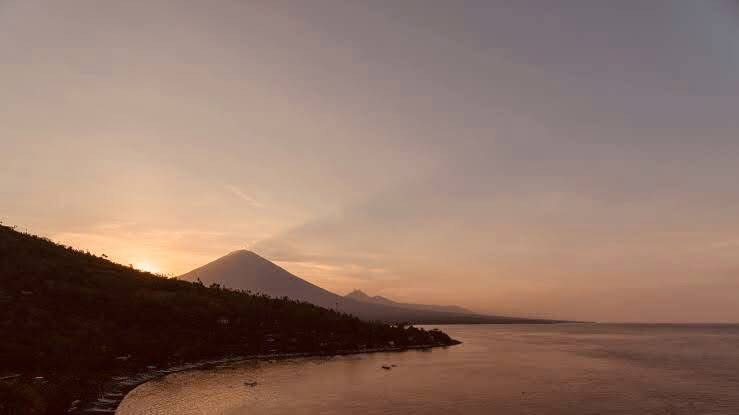
Mount Agung, Bali’s sacred mountain and sometimes-active volcano. Photo by Jody Kurash.
What about tax requirements?
JK: When I work for a foreign company, I have to pay taxes to the country where I’m living. I also have to pay U.S. income taxes on the same salary, which I think is unfair. The U.S. is one of only three countries in the world that taxes based on citizenship rather than residency. (If you’re curious, the other two are Eritrea and the Philippines.
Have you been affected by economic or political instability?
JK: Obviously this is something you want to consider beforehand. I had a friend that had to leave Myanmar in 2020 during an uprising. Economic instability can happen suddenly. I was living in Hanoi during the Covid pandemic. I was teaching in a public school at that time and found myself laid off suddenly when schools were shuttered. Luckily, the government required companies to pay everyone at least the minimum Vietnamese wage, and I had other options such as freelance writing and online work. Meanwhile, back in Bali, many of my friends who worked in the tourism industry found themselves without any backup plan.
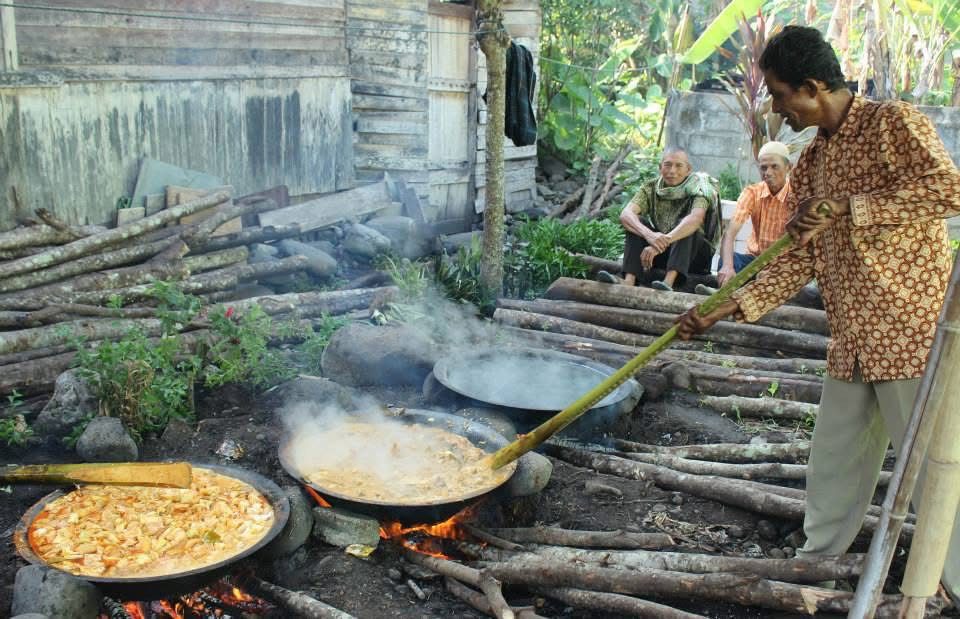
Men preparing traditional padang, a dish named for the capital of West Sumatra, at a wedding in a rural area. Photo by Jody Kurash.
What is your overall impression?
JK: I’ve lived abroad for nearly 13 years. Now when I visit the U.S., it feels like a foreign country to me. While I still believe there are many great things about America, it seems that every year I feel more disconnected due to current events, like Roe v. Wade being overturned, police shootings and taking over Greenland by force. The “hate” factor in the U.S. is palpable. I ask myself how can people support these ideas? I feel like my little island home is my safe space, far away from the madness.

